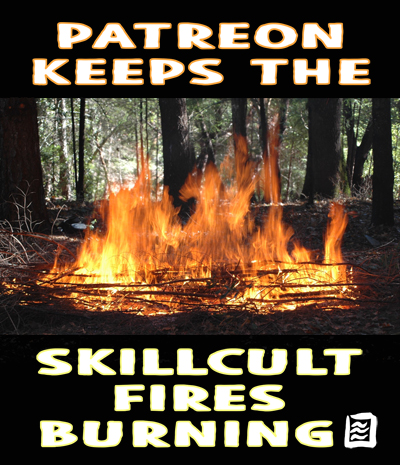Somehow in thinking often and long about what makes using an axe effective, I came up with these five things that I think are pretty fundamental. Surprisingly, they not only formed a real English word to use as an acronym, but three of them! Some of these are interrelated and it is not a completely tidy concept. It's more like a framework to define and identify the things we need to work on or have in line to operate effectively. But if you think about these five factors and removing any one of them, it becomes obvious that effectiveness will suffer. I think pursuing these ideas will ultimately make us able to function at a high level. This video series will be 5 videos long aside from this introduction.
Strategy: Strategy is all important. Starting to cut a log with no strategy is like starting on a trip with no map, no idea how to get there, just the general direction and that eventually with enough time and fuel you'll probably get there. Strategy is the planning of the trip to get to center of that log in the most efficient way. It may not be the shortest direct distance on a bumpy windy road, but it's something that we think will be the fastest or require the least fuel and time. Strategy is neglected for two reasons. One is not knowing that it's important. A lot of beginners will think about getting to the center of the log, but not how to best get there. Another is lack of faith in the strategy or abandonment of it due to frustration. Have a strategy, even if you aren't sure it is the best strategy and stick with it. Sure, vary it, experiment, adapt, but do those things with intent.
Tool: An axe is not just an axe. Most of them need work out of the box in order to cut effectively. There are seemingly infinite axe head designs, handle designs, lengths, weights and grinds that could work effectively. But, there are certain parameters outside of which chopping will become much less effective.
Accuracy: with an axe is a hard won skill. It certainly requires time spent, but I believe it can improve more quickly with intent and a little instruction. Without it, you can't execute your strategy effectively. Lack of accuracy is not a reason to abandon strategy or give up on attempting to be accurate. Quite the opposite I think.
Technique: as I mean it, technique is separate from Accuracy and efficiency, though related to both. What I mean here is the mechanics of chopping and what you do with your body to actually make the axe cut the wood effectively. If all the other 4 factors are in place, you will still cut the wood, but there are things you can do to make the axe cut better all else being equal. Mostly we'll be talking about the generation of velocity, but there are other things and not unlikely some I don't know about or haven't noticed.
Efficiency: Like the word Technique, efficiency could be interpreted in multiple ways. What I mean here though is economy of energy and motion. Basically how much result from a given expenditure of energy. We already know that it can take one person way more energy to get the same log cut in two. The ideal of efficiency would be to whittle the amount of energy down to a theoretical minimum by letting go of unnecessary, effort/tension/movement/error etc.
As Onix Pyro said in the comments on this introduction video, "practice makes better, not best" Any ideal of perfect axemanship is a fantasy when knowledge necessarily has limits, the machine is not perfect and the conditions are variable. And there is no need for perfection or ultimate speed or any other ideal. But realizing that there is something out there vaguely resembling a theoretical perfection gives us a measure to observe our effectiveness against. While I lack the teaching experience to prove it, I believe that a little thought and action around these five points will quickly accelerate a beginners effectiveness with an axe and provide a framework for anyone to measure and improve. I consider this a work in progress and am willing to revise this list if necessary, but it seems pretty solid as far as I can think and from the feedback I've gotten so far.



